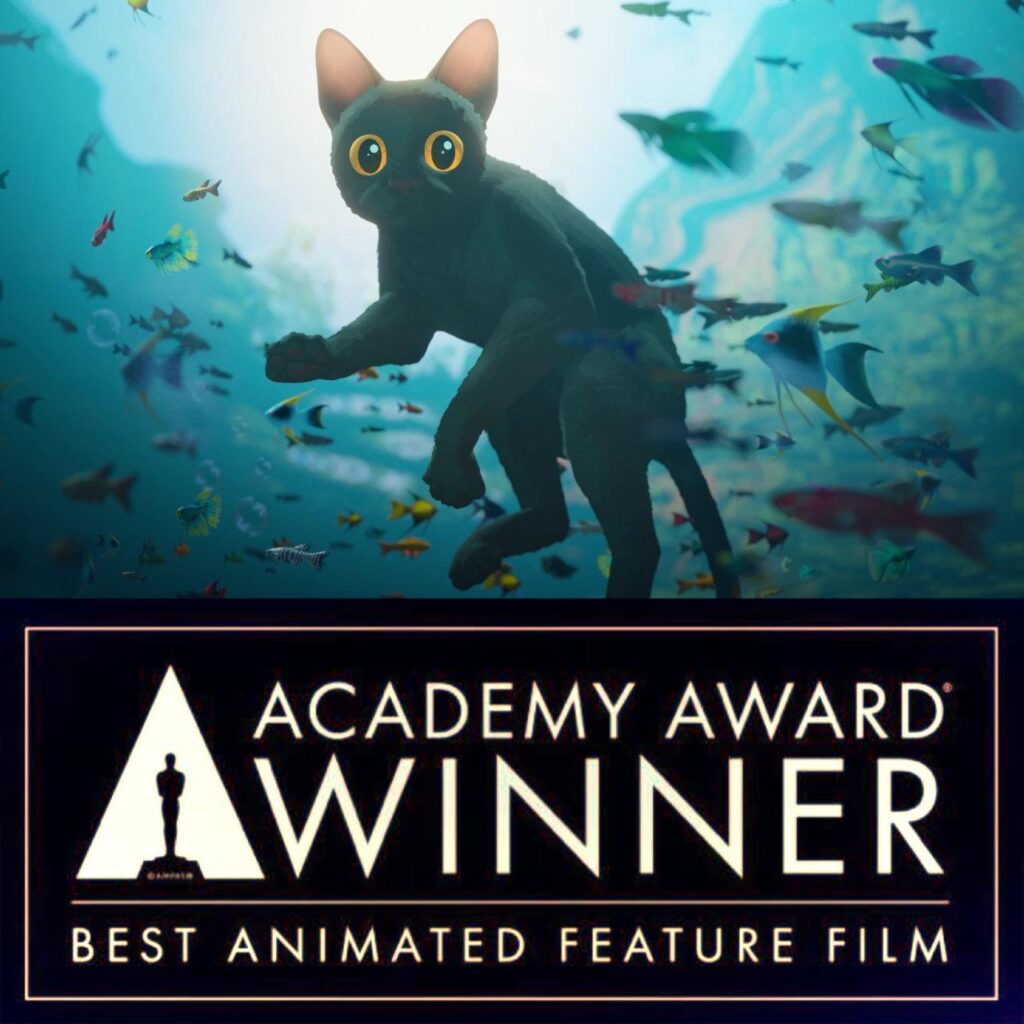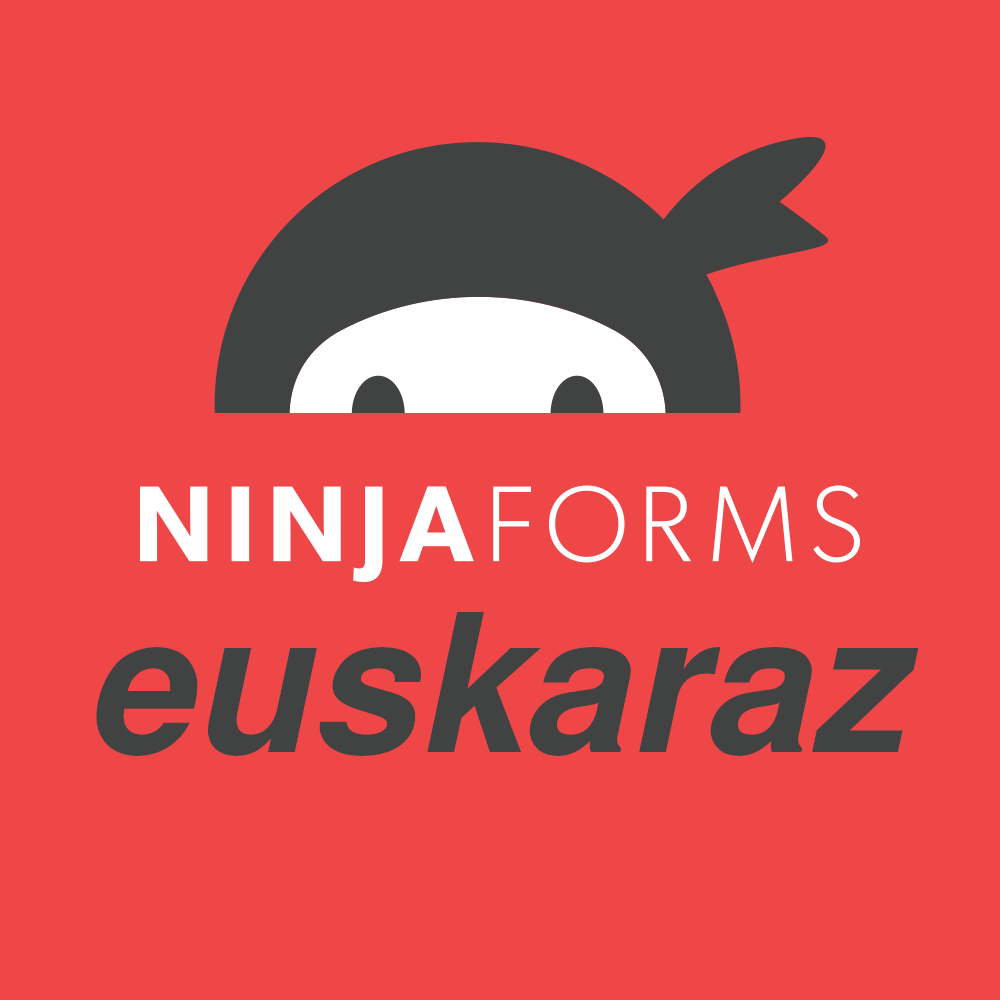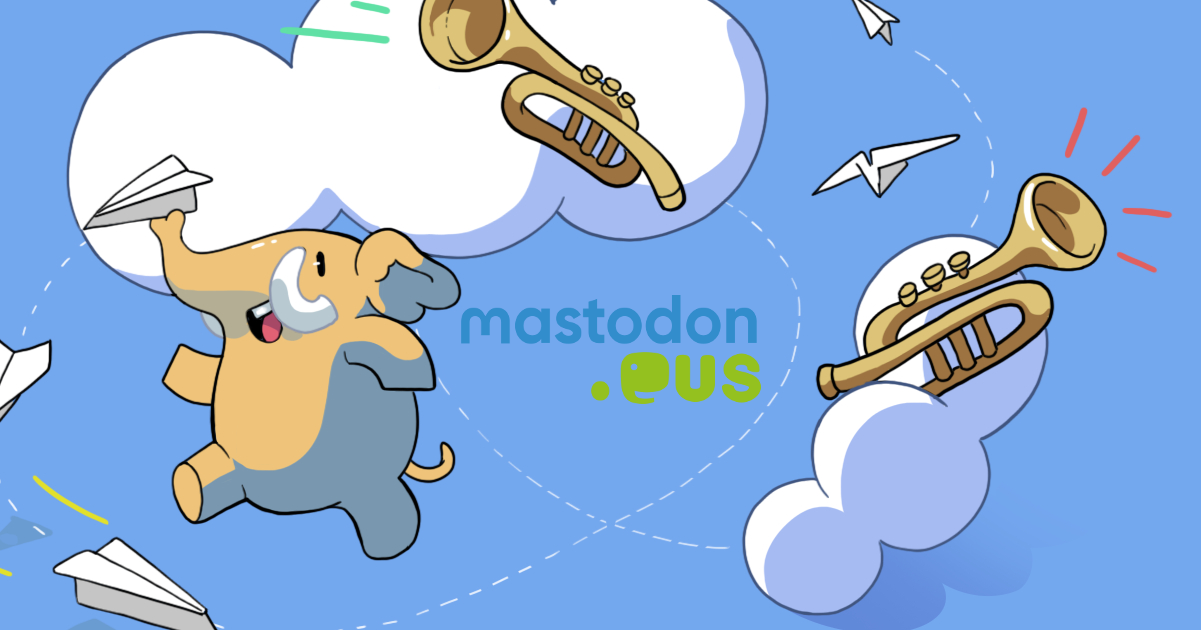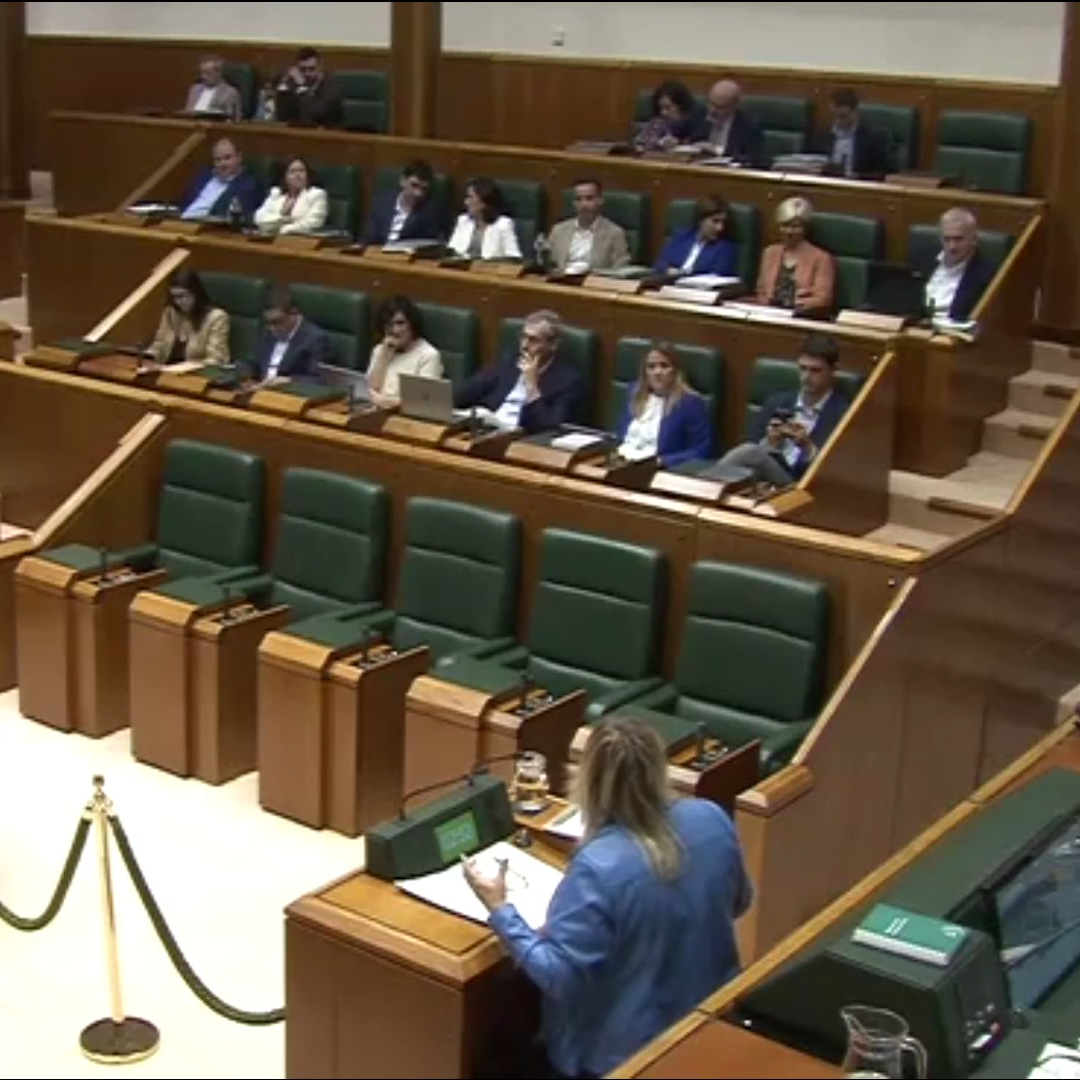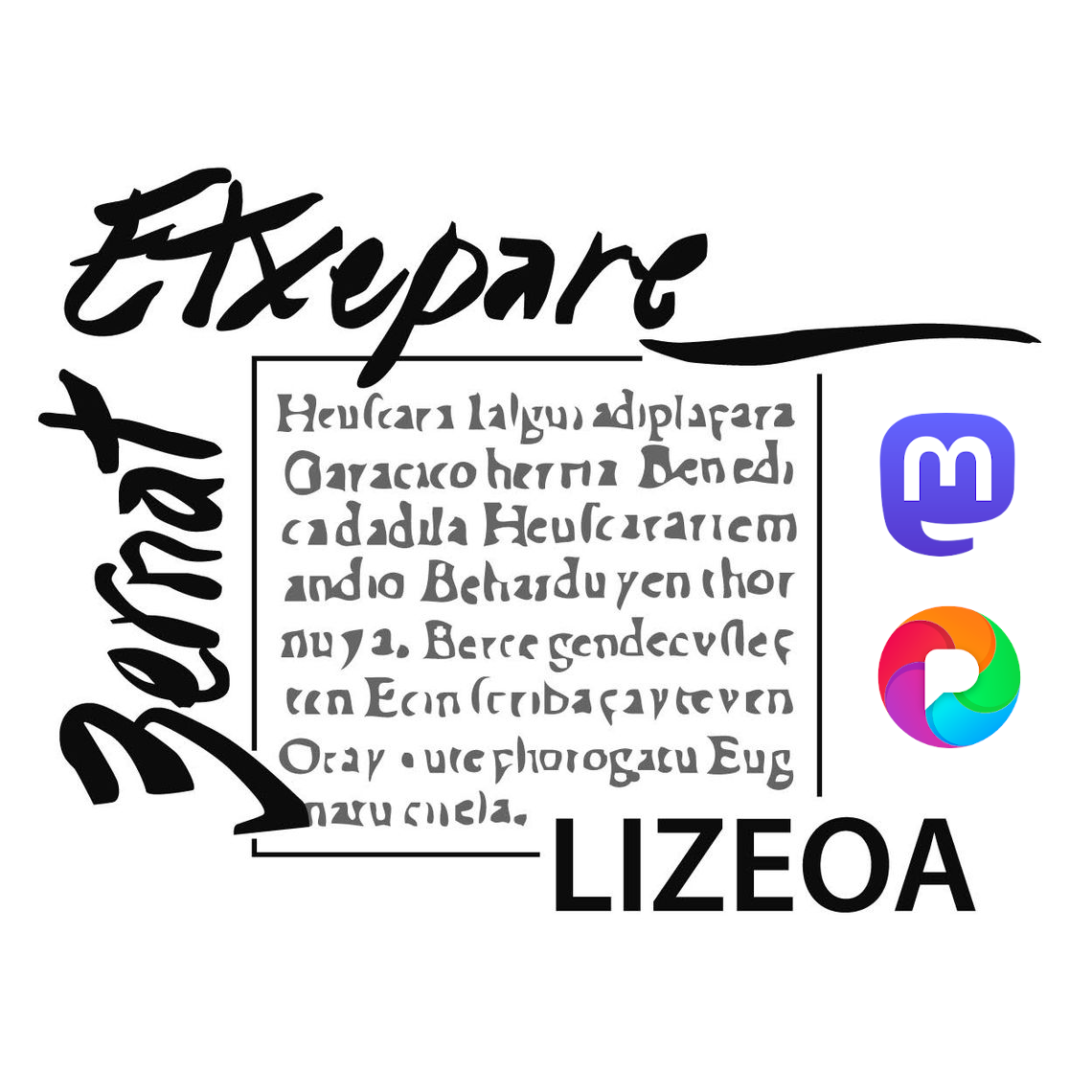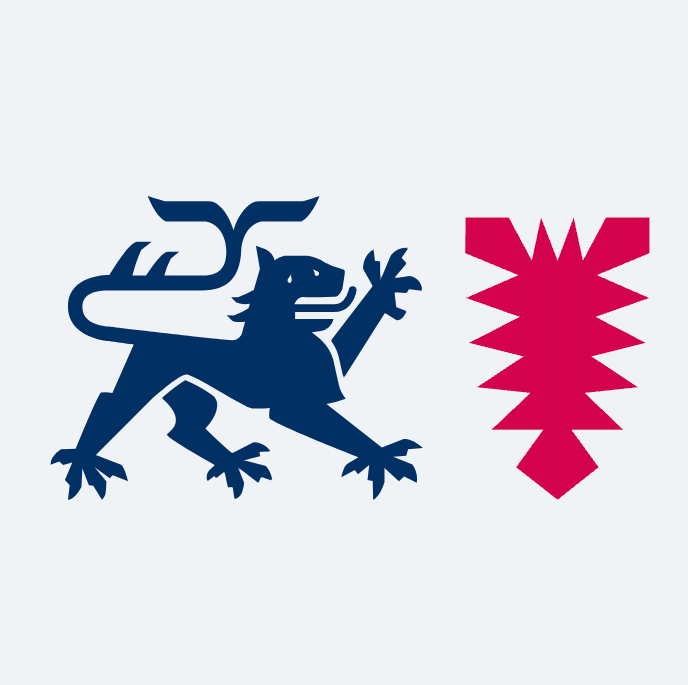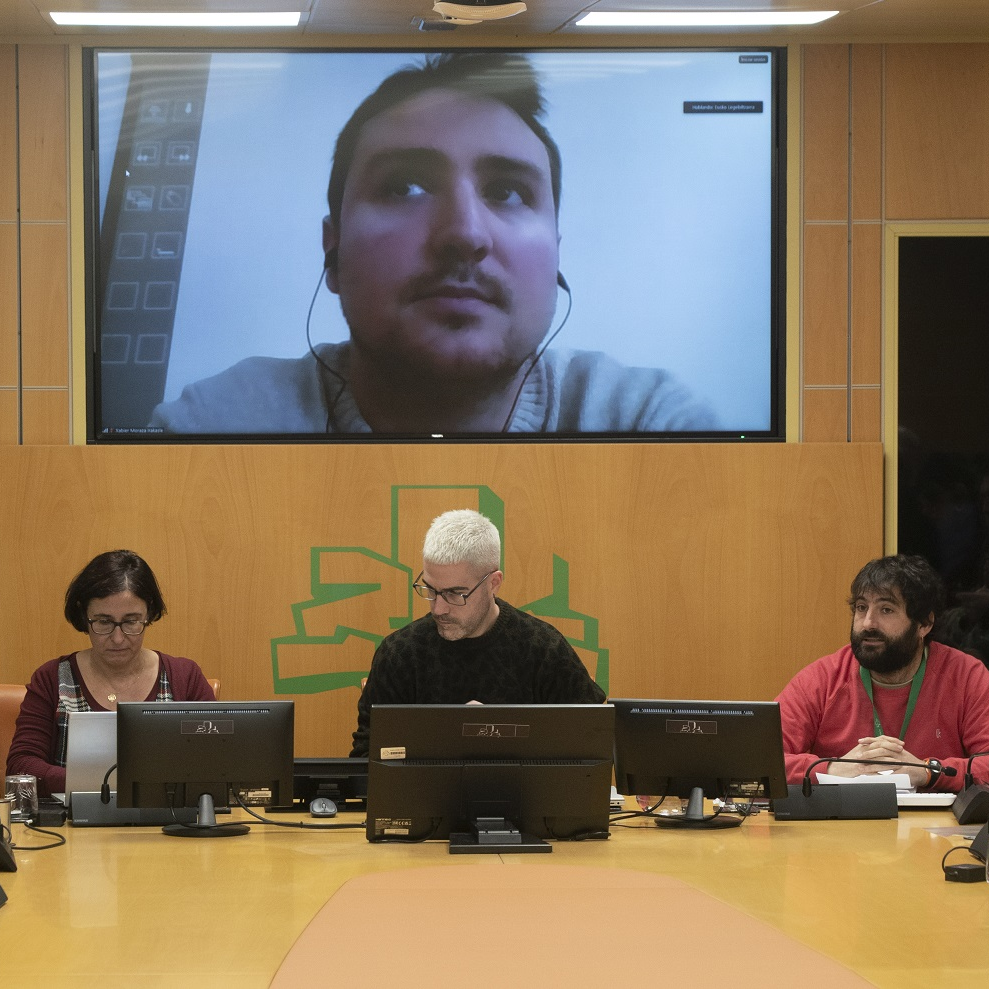Digital Auzolan underway to communicate in Basque with technology
- At a press conference held this Monday in Tabakalera, Librezal called for a gigantic digital auzolan. The goal is to record about 10,000 hours of voice to be able to communicate in Basque with technology. Within this auzolan we have organised a recording marathon in collaboration with Librezale and Hirikilabs for 9 April. Encourage and participate!

Common Voice is an initiative of the Mozilla Foundation that aims to create better voice knowledge technologies that are accessible to all. Voice is becoming more and more common to interact with machines, but so far systems (Google Assistant, Apple Siri, Microsoft Cortana, Amazon Alexa...) have many problems:
They can only be used in the most widely used languages. The big companies behind them look only at the economic benefits and the small languages are not viable for them. If no alternatives arise, the Basques will have to speak in Spanish to television, mobile phones and other devices. The same will happen to hundreds of millions of people in other minority languages around the world.
Common Voice will be available in as many languages as possible, potentially in any language. 20 languages are already making voice recordings and another 70 more are preparing for it. Technology will allow us to speak in our mother tongue to the Basques and other linguistic communities of the world such as ours.
They don't take diversity of voices into account. Speaking a primary language does not guarantee that the device understands your voice. If you speak with accent or are a woman, you will have more difficulties, as most of the voices that have been historically used to train these motors have been white middle-class men.
Common Voic wants to take into account all kinds of voices. That is why we want the voice recognition in Basque to be as varied as possible: women and men, of all ages, Euskaldunberris and Euskaldunzaharras, from all corners of Euskal Herria...
They constantly listen and send the recordings of our voices to the server. They are a nightmare from the point of view of privacy. “By our will” are the spies we have put at home. As proprietary software, users cannot know what is done with our voice recordings on the device and we have no control over what happens on the server. Large companies make profits through the sale of private data of citizenship.
Common Voic will give priority to privacy, will not send our voice anywhere. Voice processing will be done on the device itself. Our voice will not be sent, analyzed, or monitored. Free software projects show that technology can emerge differently, targeting the needs and rights of citizens.
If you want to learn more about Common Voice, we recommend that you read the Project FAQ page.
Call for digital auzolan
To be able to speak in Basque with technology, it takes about 10,000 hours of voice to train the motor. To this end, Librezal has called for digital auzolan, where workers will be able to participate. If you want to participate you can make the recordings at any time and from anywhere:
- https://voice.mozilla.org/eu open with a browser.
- Tap the "Talk" option.
- Read the sentences that appear aloud by following the instructions.
It can also help validate the recordings that have already been made. To do this, press "Listen" and follow the instructions. It's very simple and you can do it from a computer or from your phone. Yes, we recommend that you record them in a quiet place for the recordings to be of good quality.
9 April recording marathon in Hirikilabs
Within this digital  auzolan we have organised a recording marathon in collaboration with Librezale and Hirikilabs. It will be in Tabakalera (Donostia-San Sebastian) on April 9, from 18:00 to 20:00 hours. Encourage and participate!
auzolan we have organised a recording marathon in collaboration with Librezale and Hirikilabs. It will be in Tabakalera (Donostia-San Sebastian) on April 9, from 18:00 to 20:00 hours. Encourage and participate!
As a company that integrates technology, design and communication we promote free technologies and Euskera is a value for us. That is why we are endeavouring to ensure that Euskera also has a presence in advanced technologies. We therefore believe it is necessary to promote this type of participatory and free projects, so that, as in this case, in the future we can have in our hands different products to communicate in Basque with the machines and that the Basque language is not a second language.
We believe it is important to take steps in the field of technological sovereignty and to build alternatives as a country before big companies. The organization of this marathon is not the first step we take in that road, for example, last year Mastodon.eus we collaborated in the implementation of a social network in Basque alternative to Twitter.
Contribution of ARGIA to the project
Before starting with the voice recording phase, 5,000 phrases had to be gathered from five to ten words. The phrases should have a Creative Commons Zero (CC0) license, which is equivalent to being on the public property, which added difficulty to the work. Librezale members wrote over 2,000 phrases by hand and also got them from subtitles of films in the public domain like Life is beautiful. The collection was completed with a further 3,900 phrases extracted from the texts expressly provided by ARGIA for this project. The recordings made with these phrases are what we will use to train the motor in the recognition of the voice.
This news was posted by Iametza Interactive and we brought it to ARGIA thanks to the Creative Commons free licenses.








